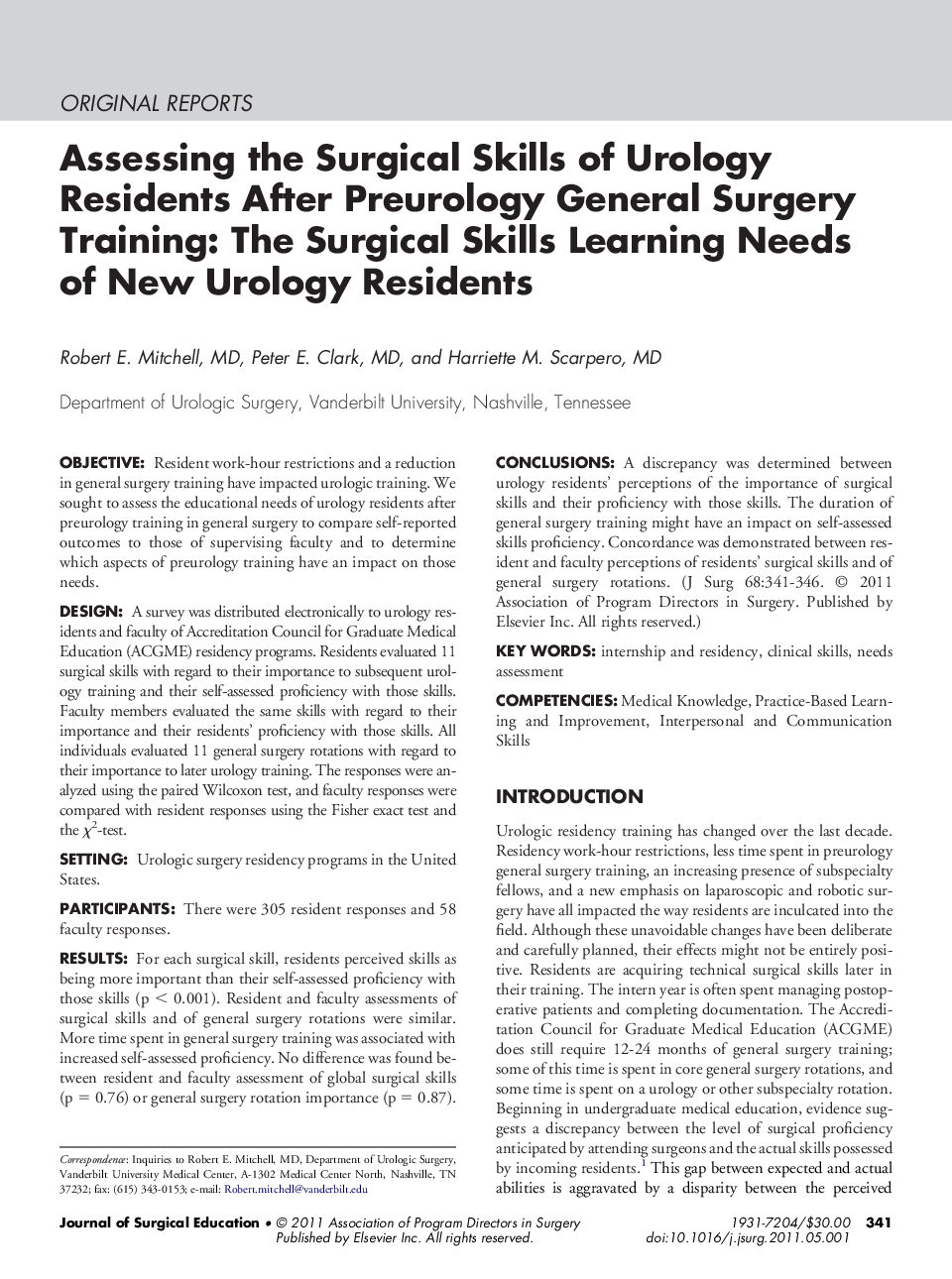| Article ID | Journal | Published Year | Pages | File Type |
|---|---|---|---|---|
| 4298489 | Journal of Surgical Education | 2011 | 6 Pages |
ObjectiveResident work-hour restrictions and a reduction in general surgery training have impacted urologic training. We sought to assess the educational needs of urology residents after preurology training in general surgery to compare self-reported outcomes to those of supervising faculty and to determine which aspects of preurology training have an impact on those needs.DesignA survey was distributed electronically to urology residents and faculty of Accreditation Council for Graduate Medical Education (ACGME) residency programs. Residents evaluated 11 surgical skills with regard to their importance to subsequent urology training and their self-assessed proficiency with those skills. Faculty members evaluated the same skills with regard to their importance and their residents' proficiency with those skills. All individuals evaluated 11 general surgery rotations with regard to their importance to later urology training. The responses were analyzed using the paired Wilcoxon test, and faculty responses were compared with resident responses using the Fisher exact test and the χ2-test.SettingUrologic surgery residency programs in the United States.ParticipantsThere were 305 resident responses and 58 faculty responses.ResultsFor each surgical skill, residents perceived skills as being more important than their self-assessed proficiency with those skills (p < 0.001). Resident and faculty assessments of surgical skills and of general surgery rotations were similar. More time spent in general surgery training was associated with increased self-assessed proficiency. No difference was found between resident and faculty assessment of global surgical skills (p = 0.76) or general surgery rotation importance (p = 0.87).ConclusionsA discrepancy was determined between urology residents' perceptions of the importance of surgical skills and their proficiency with those skills. The duration of general surgery training might have an impact on self-assessed skills proficiency. Concordance was demonstrated between resident and faculty perceptions of residents' surgical skills and of general surgery rotations.
